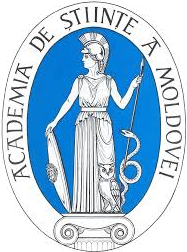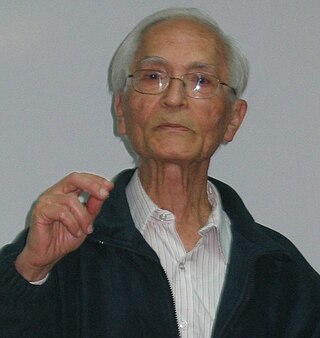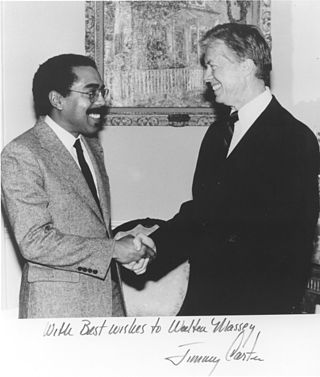
The National Science Foundation (NSF) is an independent agency of the United States federal government that supports fundamental research and education in all the non-medical fields of science and engineering. Its medical counterpart is the National Institutes of Health. With an annual budget of about $8.3 billion, the NSF funds approximately 25% of all federally supported basic research conducted by the United States' colleges and universities. In some fields, such as mathematics, computer science, economics, and the social sciences, the NSF is the major source of federal backing.

The British Academy for the Promotion of Historical, Philosophical and Philological Studies is the United Kingdom's national academy for the humanities and the social sciences. It was established in 1902 and received its royal charter in the same year. It is now a fellowship of more than 1,000 leading scholars spanning all disciplines across the humanities and social sciences and a funding body for research projects across the United Kingdom. The academy is a self-governing and independent registered charity, based at 10–11 Carlton House Terrace in London.

Science policy is concerned with the allocation of resources for the conduct of science towards the goal of best serving the public interest. Topics include the funding of science, the careers of scientists, and the translation of scientific discoveries into technological innovation to promote commercial product development, competitiveness, economic growth and economic development. Science policy focuses on knowledge production and role of knowledge networks, collaborations, and the complex distributions of expertise, equipment, and know-how. Understanding the processes and organizational context of generating novel and innovative science and engineering ideas is a core concern of science policy. Science policy topics include weapons development, health care and environmental monitoring.
A national academy is an organizational body, usually operating with state financial support and approval, that co-ordinates scholarly research activities and standards for academic disciplines, and serve as public policy advisors, research institutes, think tanks, and public administration consultants for governments or on issues of public importance, most frequently in the sciences but also in the humanities. Typically the country's learned societies in individual disciplines will liaise with or be coordinated by the national academy. National academies play an important organisational role in academic exchanges and collaborations between countries.

Jacob David Bekenstein was a Mexican, USA and Israeli theoretical physicist who made fundamental contributions to the foundation of black hole thermodynamics and to other aspects of the connections between information and gravitation.

The European Science Foundation (ESF) is an association of 11 member organizations devoted to scientific research in 8 European countries. ESF is an independent, non-governmental, non-profit organisation that promotes the highest quality science in Europe. It was established in 1974 and its offices are located in Strasbourg, France (headquarters).

The Academy of Sciences of Moldova, established in 1961, is the main scientific organization of Moldova and coordinates research in all areas of science and technology. Ion Tighineanu has been the head of the Academy of Sciences since April 9, 2019.

Aaron Ciechanover is an Israeli biologist who won the Nobel Prize in Chemistry for characterizing the method that cells use to degrade and recycle proteins using ubiquitin.

Jacob Ziv was an Israeli electrical engineer and information theorist who developed the LZ family of lossless data compression algorithms alongside Abraham Lempel.

Walter Eugene Massey is an American educator, physicist, and executive. President emeritus of the School of the Art Institute of Chicago (SAIC) and of Morehouse College, he is chairman of the board overseeing construction of the Giant Magellan Telescope, and serves as trustee chair of the City Colleges of Chicago. During his career, Massey has served as head of the National Science Foundation, director of Argonne National Laboratory, and chairman of Bank of America. He has also served in professorial and administrative posts at the University of California, University of Chicago, Brown University, and the University of Illinois.

Israel Academy of Sciences and Humanities, based in Jerusalem, was established in 1961 by the State of Israel to foster contact between Israeli scholars in the sciences and humanities and create a think tank for advising the government on research projects of national importance. Its members include many of Israel's most distinguished scholars.

The Norwegian Academy of Science and Letters is a learned society based in Oslo, Norway. Its purpose is to support the advancement of science and scholarship in Norway.

The Berlin-Brandenburg Academy of Sciences and Humanities, abbreviated BBAW, is the official academic society for the natural sciences and humanities for the German states of Berlin and Brandenburg. Housed in three locations in and around Berlin, Germany, the BBAW is the largest non-university humanities research institute in the region.

The Infosys Prize is an annual award given to scientists, researchers, engineers and social scientists of Indian origin by the Infosys Science Foundation and ranks among the highest monetary awards in India to recognize research. The prize for each category includes a gold medallion, a citation certificate, and prize money of US$100,000. The prize purse is tax free in the hands of winners in India. The winners are selected by the jury of their respective categories, headed by the jury chairs.

All European Academies (ALLEA) is the European Federation of Academies of Sciences and Humanities. It was founded in 1994, and brings together more than 50 Academies of Sciences and Learned Societies from over 40 member countries of the Council of Europe. Since May 2018, the President of ALLEA is Antonio Loprieno. ALLEA is financed by annual dues from its member academies and remains fully independent from political, religious, commercial or ideological interests. The ALLEA secretariat is based on the premises of the Berlin-Brandenburg Academy of Sciences and Humanities in Berlin.

Miriam Cohen is an Israeli mathematician and a professor in the Department of Mathematics at Ben-Gurion University of the Negev whose main areas of research are Hopf algebras, quantum groups and Noncommutative rings.

Blavatnik Awards for Young Scientists was established in 2007 through a partnership between the Blavatnik Family Foundation, headed by Leonard Blavatnik, chairman of Access Industries, and the New York Academy of Sciences, headed by president Nicholas Dirks.

Russian Foundation for Basic Research (RFBR) is a national science funding body of the Russian government created on 27 April 1992 by a decree of the President of Russia.

Ilan Marek is a bi-national French-Israeli chemist. He is particularly interested in the design and development of new stereo- and enantioselective strategies for the creation of several contiguous stereogenic centres and by the functionalization of organic molecules at the least reactive position. These processes are carried out in a single chemical step and lead to the synthesis of complex molecular structures. Understanding reaction mechanisms provides insight into the origins of stereoselectivity and governs optimization for the development of the most effective and general methodologies possible.
Michal Feldman is a full professor of Computer Science and the Chair of Computation and Economics at Tel Aviv University, the head of Economics and Computation (EC) lab, and a visiting researcher in Microsoft Research Israel. Michal’s research focuses on algorithmic game theory, an area that lies in the intersection of computer science, microeconomics and game theory. Among other topics, she studies auction theory, mechanism design, algorithm design, the price of anarchy, and e-commerce. Michal is an alumna of the Israel Young Academy and of the Global Young Academy. Her research is funded by prestigious grants, including, among others, grants of the ERC : ERC starters and ERC consolidator, ISF grants, and an Amazon Research Award. She was selected by the Forbes magazine as one of the most influencing women in Israel in 2016., and is the recipient of the Kadar Award, Bruno Award, and ACM SIGecom mid-career Award.


















